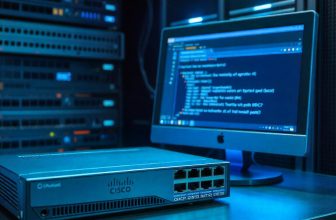
| CCNA Portable Command Guide | Cisco CCNA in 60 Days |
| CCNA Official Cert Guide Library | CCNA Certification All-in-One |

Telnet is a virtual terminal protocol which is used to remotely access network devices for remote management or information gathering. Upon Successfully establishing telnet connection to a device make us able to run any available programs on the remote device.
In order to access remote device (in our case remote router) through telnet, first you have to configure a password for VTY lines on the remote router, this is done initially through console cable and console connection.
Once the switches and routers in the network are configured for telnet access through console connection, we can then use telnet to reconfigure, manage or monitor each router and switch remotely without connecting physically through console cable.
We can run Telnet program from any DOS command prompt or Cisco device, for DOS command prompt click on start in windows and type cmd, click on cmd and wait for it to open. In command prompt type telnet IPAddress , Replace the IP Address with the real IP Address of the device you want to access.
Telnet a Cisco Router:
We will use the routers setup which were used in the previous lab for cisco discovery protocol(CDP).
Open the command line interface (CLI) of Upaae1 router and follow the steps below.
Upaae1> Upaae1> Upaae1>enable Upaae1#telnet 12.1.1.2 Trying 12.1.1.2 ...Open [Connection to 12.1.1.2 closed by foreign host] Upaae1# Upaae1#

We cannot access Upaae2 router through Telnet because VTY lines on a router are configured as login which means we have to either set password for VTY lines or enforce no login through no login command on Upaae2 router. We will configure VTY password on Upaae2 router by using console cable and Hyperterminal.
Open CLI of Upaae2 and execute the following commands.
Upaae2>enable Upaae2#configure terminal Enter configuration commands, one per line. End with CNTL/Z. Upaae2(config)# Upaae2(config)#line vty 0 4 Upaae2(config-line)# Upaae2(config-line)#password upaae2pass Upaae2(config-line)#login Upaae2(config-line)#end Upaae2# %SYS-5-CONFIG_I: Configured from console by console Upaae2#

Now it is time to telnet Upaae2 router.
Upaae1# Upaae1#telnet 12.1.1.2 Trying 12.1.1.2 ...Open User Access Verification Password: Upaae2>

We have remote access to Upaae2, lets run a few commands on Upaae2 but before that we must configure enable password on router Upaae2 through console connection. You may want to read this article on setting enable password and setting enable secret password on cisco devices.
Upaae2>enable Upaae2# Upaae2# Upaae2#configure terminal Enter configuration commands, one per line. End with CNTL/Z. Upaae2(config)# Upaae2(config)# Upaae2(config)#enable password upaae2enpass Upaae2(config)#exit
Complete Remote Access Upaae2 from Upaae1 router:
Upaae1>enable Upaae1#telnet 12.1.1.2 Trying 12.1.1.2 ...Open User Access Verification Password: Upaae2> Upaae2> Upaae2>enable Password: Upaae2# // press (ctrl+shift+6), release (ctrl+shift+6), then (press X key). Upaae2# Upaae1#show sessions Conn Host Address Byte Idle Conn Name * 1 12.1.1.2 12.1.1.2 0 0 12.1.1.2
This output indicates that your session to host 12.1.12 (router Upaae2) is opened.
Type exit anytime if you want to end the telnet connection, if you want to keep telnet connection to the remote device and still come back to your original router console, press [ctrl+shift+6], release [ctrl+shift+6] then press X key.
| CCNA Portable Command Guide | Cisco CCNA in 60 Days |
| CCNA Official Cert Guide Library | CCNA Certification All-in-One |





